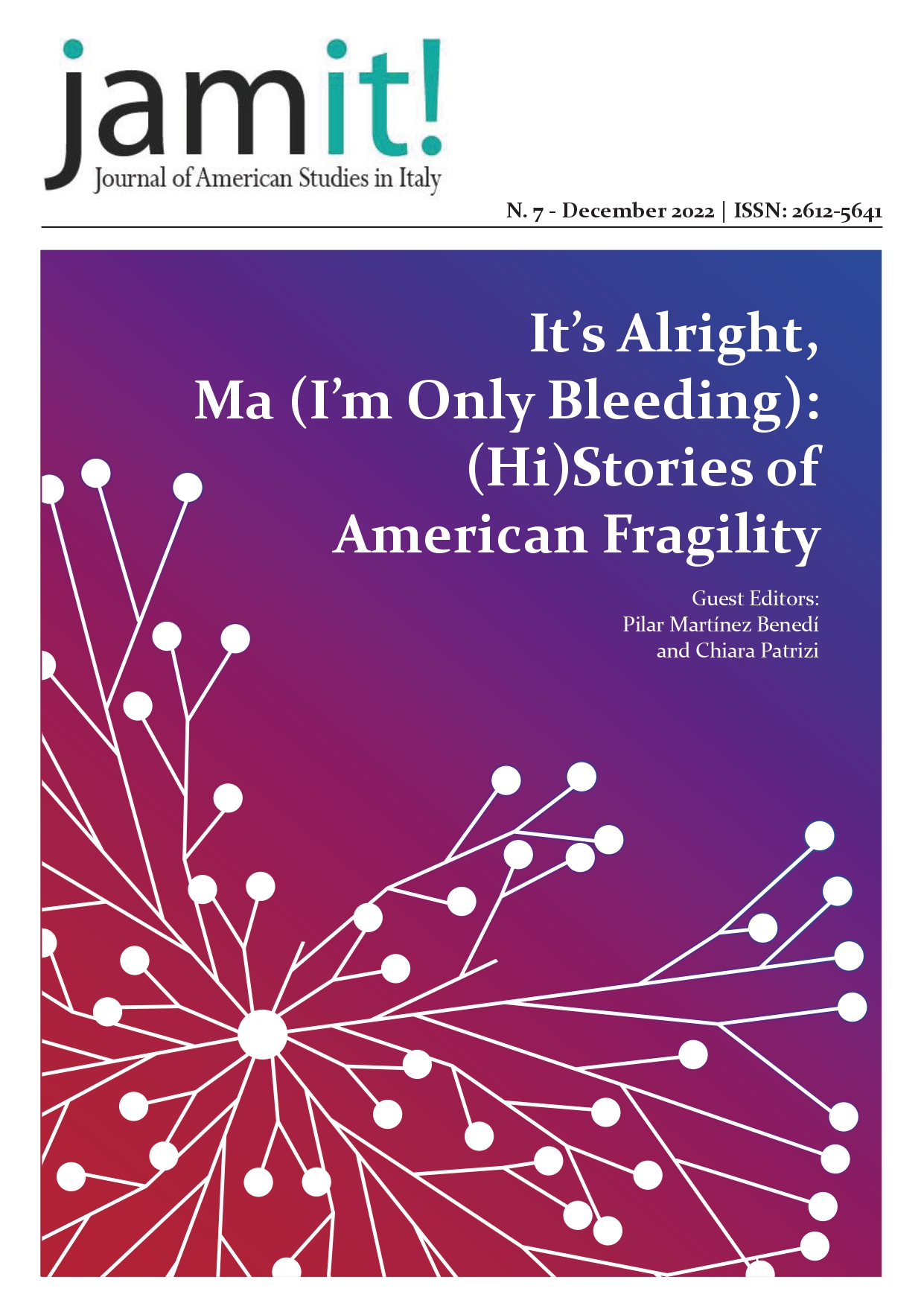Gothic Ontology and Vital Affect in W. E. B. Du Bois's The Souls of Black Folk
DOI:
https://doi.org/10.13135/2612-5641/6429Keywords:
Du Bois, Ontology, Affect, Racism, Radical EmpiricismAbstract
This essay turns to the writing of William James in “A Word of Pure Experience” as a methodological framework for reading The Souls of Black Folk. While most readings of Souls emphasize the unfolding of black consciousness, or the mind, this essay brings the body into critical focus, specifically in tracing the ways in which Du Bois appeals to the plasticity of bodies—their ability to affect and to be affected—as a creative textual means of redressing racial strife and crisis. To this end, I argue that Souls both diagnoses what I am calling a “gothic” ontology of racial division (after James) and appeals to moments of vital affect which overspill and thus critically challenge the boundaries of such racial disjuncture endemic to modernity and race relations at the dawn of the twentieth century. My reading thus resituates Souls in a literary-philosophical genealogy running from James to Du Bois, yet one that emphasizes their convergence via James’s “radical empiricism” rather than his more familiar pragmatism.
Keywords: James; Du Bois; Ontology; Affect; Racism; Radical empiricism.
Downloads
Published
Issue
Section
License
Authors who publish with this journal agree to the following terms:
- Authors retain the copyright and full publishing rights for their submissions to the journal.
- Authors grant the journal right of first publication with the work simultaneously licensed under a Creative Commons Attribution-NonCommercial-NoDerivatives 4.0 International License that allows others to share unedited work for non-commercial purposes with an acknowledgement of the work's authorship and initial publication in this journal.
- Authors are able to enter into separate, additional contractual arrangements for the non-exclusive distribution of the journal's published version of the work (e.g., post it to an institutional repository or publish it in a book), with an acknowledgement of its initial publication in this journal.
- Authors are permitted and encouraged to post their work online (e.g., in institutional repositories or on their website) prior to and during the submission process, as it can lead to productive exchanges, as well as earlier and greater citation of published work (See The Effect of Open Access).





